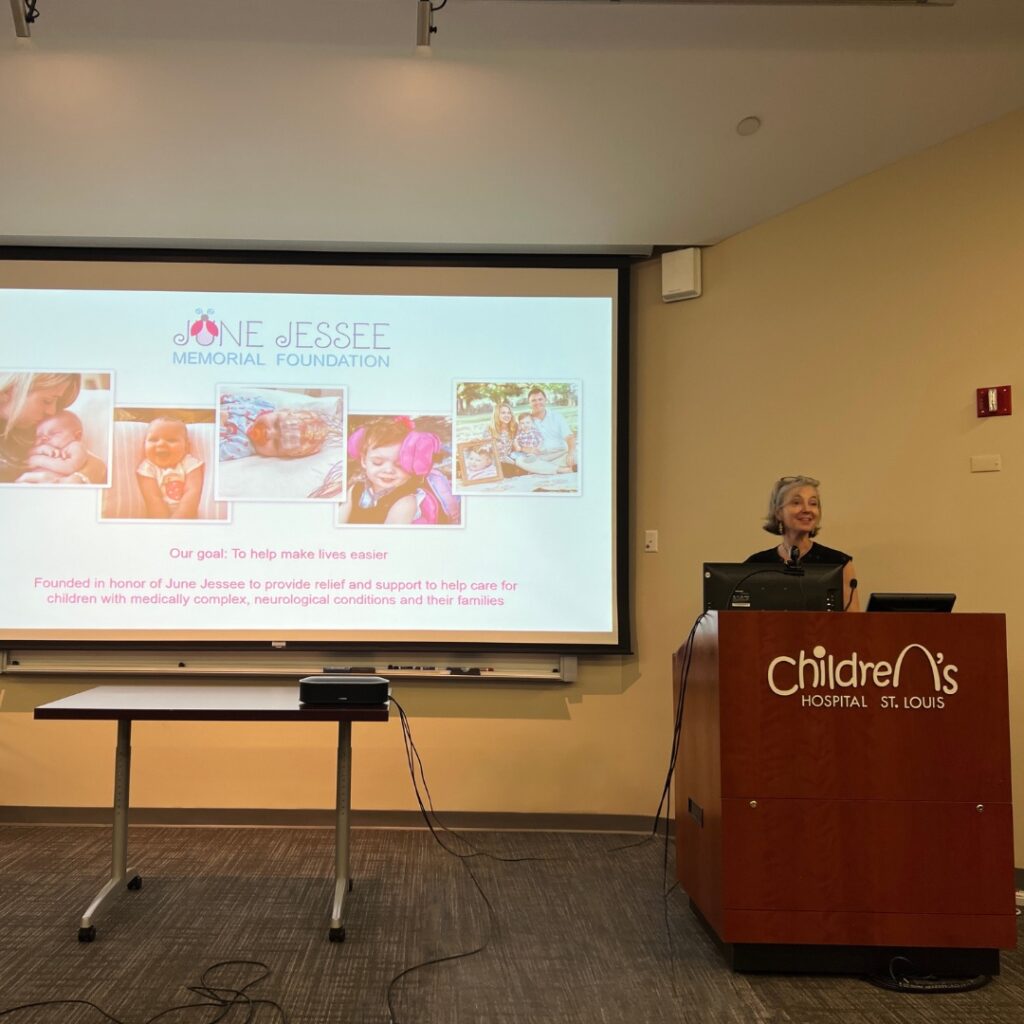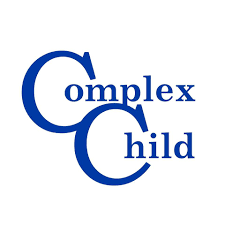Advancing Patient Care By Providing Support to Parents and Caregivers
What gets in the way of parents feeling like “good parents” and why is it so important for doctors to consider when caring for children with medically complex, neurological conditions? As the special speaker for June Jessee Memorial Foundation’s annual Pediatric Grand Rounds lectureship at St. Louis Children’s Hospital, Blyth Lord, founder and executive director of Courageous Parents Network, shared this intriguing concept in her talk aimed at helping doctors build positive partnerships with parents and caregivers of their patients.
Blyth’s presentation, titled “Walk with Me: Accompanying Parents & Centering the Good” was built on the premise of Dr. Pamela Hinds’ “good parent” research. This interesting study evaluates how parents of seriously ill children view themselves according to their own internal definition of being a good parent, as well as how parents’ interactions with medical professionals may influence their self-reflection. As a strong advocate of the benefits of pediatric palliative care, Blyth encouraged the doctors to recognize parents’ innate desire to make the best decisions for their children, strengthening their belief in themselves as good parents.
In doctors’ interactions with parents, Blyth reminded them to remember that parents carry invisible burdens, including trauma from their child’s medical journey. She pointed out that all parents of seriously ill children are quietly grieving, and the doctors’ job isn’t necessarily to help them find a way out, but rather to support them in being a good parent. Blyth introduced the term “companioning” as defined by well-respected grief counselor Dr. Alan Wolfelt. Through the non-medical model of “companioning” doctors are encouraged to engage in support of grieving individuals by attentively listening, honoring choices, and acknowledging grief and pain.
How that support looks may vary amongst families as they seek to make the best decisions for their children at each point along their journey. Acknowledging that parental fear of regret can be strong, Blyth emphasized that doctors can be helpful in providing assurance to parents that they were thoughtful about making the best choices for their children’s care along each step of the way. Knowing that they were thoughtful in their decision-making, even when the decisions seemed especially difficult or even impossible to make, can help ensure parents feel confident as good parents and live without any regret.
The powerful impact of Blyth’s message to this group of medical professionals lies in the way in which it will ultimately help families experiencing the challenges of caring for their children with medically complex, neurological conditions. One of the June Jessee Memorial Foundation’s mission-driven goals is to advance the care of these children by educating doctors about their unique needs. Providing essential support to their parents and caregivers is one of the best ways we can care for children with medically complex, neurological conditions.
When medical professionals build positive relationships with parents and caregivers and trust them to become partners in the decision-making process, the benefits are multifaceted. For the parents and caregivers, who will naturally measure themselves by their own “good parent” definition, being surrounded by a supportive network of medical professionals is valuable. But, above all, supporting parents and caregivers and trusting their perspective provides a monumental advantage in being able to provide the best patient care – after all, parents are the best experts when it comes to their children.







